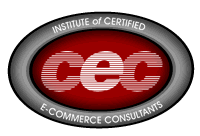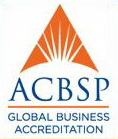CHRA® - Certified Human Resource Analyst
CHR and HRPM Course Overview & Benefits
As more human resource professionals are invited to participate at the executive level, project management
skills and processes become critical tools in meeting the organization's strategic talent and management
objectives. Through training and implementation of project management principles and processes, the
organization can reap the benefits of:
- clear communications
- an understanding of performance expectations
- vertical alignment of human resources (people) to drive strategic goals and objectives
- improved overall productivity
HR projects often involve all aspects of an organization and it's distinct functional
departments. Successful project management involves complex collaboration with different although related internal
organizations. Successful human resource project managers must call forth skills in leadership, organization,
planning, and understanding of the essential aspects of project management. This course is designed to broaden your
understanding of project management principles, develop skills needed to successfully execute project plans
and manage change initiatives, as well as build an understanding of potential risks and pitfalls that often befall
project implementation.
Finally, these project management skills and concepts will increase effectiveness and efficiency in your
HR department, develop your staff, and provide an additional level of credibility within the organization.
HRPM Course Objectives
- Define, explain and apply the five project management process groups: Initiation, Planning,
Execution, Performance, and Close.
- Define and explain processes used to determine project feasibility and project cost/benefit
analysis to come to a decision on project viability and potential return on investment.
- Identify parameters of the Initiation process to develop the business case, including the
executive summary, problem definition, project overview, strategic alignment, cost/benefit analysis,
alternatives analysis and approvals.
- Outline and define areas of project Planning including scope, deliverables, timeline,
costs/budget, quality, resources needed, stakeholder assessment, risk and contingency plans, and procuring
products and services from outside the project team.
- Define the types of deliverables needed in the Planning process for the project team and
organization including but not limited to: Organization charts (team/company), responsibility matrix,
timeline/schedule, risk management log, communications plans.
- Understand the elements of developing a Work Breakdown Structure when defining and assigning
project tasks.
- Understand and apply various change-management models.
- Recognize and identify the specific items needed to develop a project schedule including
dependencies of tasks.
- Understand what types of skills sets and capabilities are needed for project teams in the
definition of levels of authority, task assignment and responsibilities.
- Understand and outline personal and organizational values to reduce the risk of ethical
dilemmas.
- Define stakeholder groups and the level and frequency of stakeholder and sponsor
participation in a project.
- Understand the most common project pitfalls and how to mitigate them to ensure project
success.
- Determine stakeholder groups who will be affected by new process implementation to define
success and delivery methods for change.
- Understand and define the leadership qualities needed to manage, monitor and direct project
teams, establish accountably, level of authority, problem solving and motivate performance.
- Understand change management concepts and areas of resistance to guide the project team and
stakeholders through the Monitoring and Controlling process toward implementation.
- Outline and discuss the goals of the Execution, Monitoring and Controlling processes of
project management.
- Outline the frequency, method of communication, and information needed to communicate project
milestones and progress to the stakeholders.
- Use the One-Page Project Manager™ (OPPM™) as a key project communication tool.
- Understand key skills needed in leading project teams, facilitation of meetings, and
presentation of project scope, goals and objectives.
- Discuss best practices of teambuilding concepts and people management structures as they
apply to cross-functional project teams.
- Understand the steps involved in assessment, prioritizing and mitigating project risks.
- Understand and evaluate the steps in the post-implementation review and evaluation of project
outcomes during the project Closing process, including obtaining feedback from stakeholders, project team
members and sponsors for learning transfer.
- Understand the importance of documentation of lessons learned or best practices, and the
value of a project Closing celebration.
Course Agenda
- Introduction to Project Management
- An introduction of the concepts, theories and systems involved in current-day project management
methodologies
- Five Processes of Project Management
- A review of the five Process Groups within which every process is assigned
- Starting a project or phase beginning with the Project Charter
- Exploration of an idea or opportunity to determine the value and benefits to the
organization
- Types of plans, the essentials of planning, planning cycles and project components
- Discussing the key concepts behind efficient stakeholder management
- Eight Dimensions of Quality
- Identifying, understanding, and managing project resources
- Identification of appropriate staff, analysis of organization types and project management
power
- Learn how to correlate risk and opportunity, calibrate your issues, and manage them
- Transform the project from a vision to a time-based plan
- Communication - Organization and Team
- How to plan and successfully roll out your communications strategy
- How to ensure that resources and tasks are allocated appropriately
- Monitoring and Controlling Process
- Day-to-day management of critical project details
- Evaluating and Closing Process
- Measure results against the plan and make adjustments as required to stay on track
- Explore team building and people management – What makes a good project manager?
- Evaluation and project release – Close your project and build a body of knowledge
he One-Page™ Project Manager for the Human Resource Leader
- A context or framework to encourage logical thinking
- The ultimate sophistication
- Essential for project managers
- The One-Page Performance Report
- Project Management Office
- Cascading and customizing for optimal stakeholder communication
- The full suite of OPPM templates
Warning: The unauthorized reproduction or distribution of this copyrighted work is illegal.
Criminal copyright infringement, including infringement without monetary gain, is investigated by the FBI and is
punishable by up to five years in federal prison and a fine of $250,000.
|







